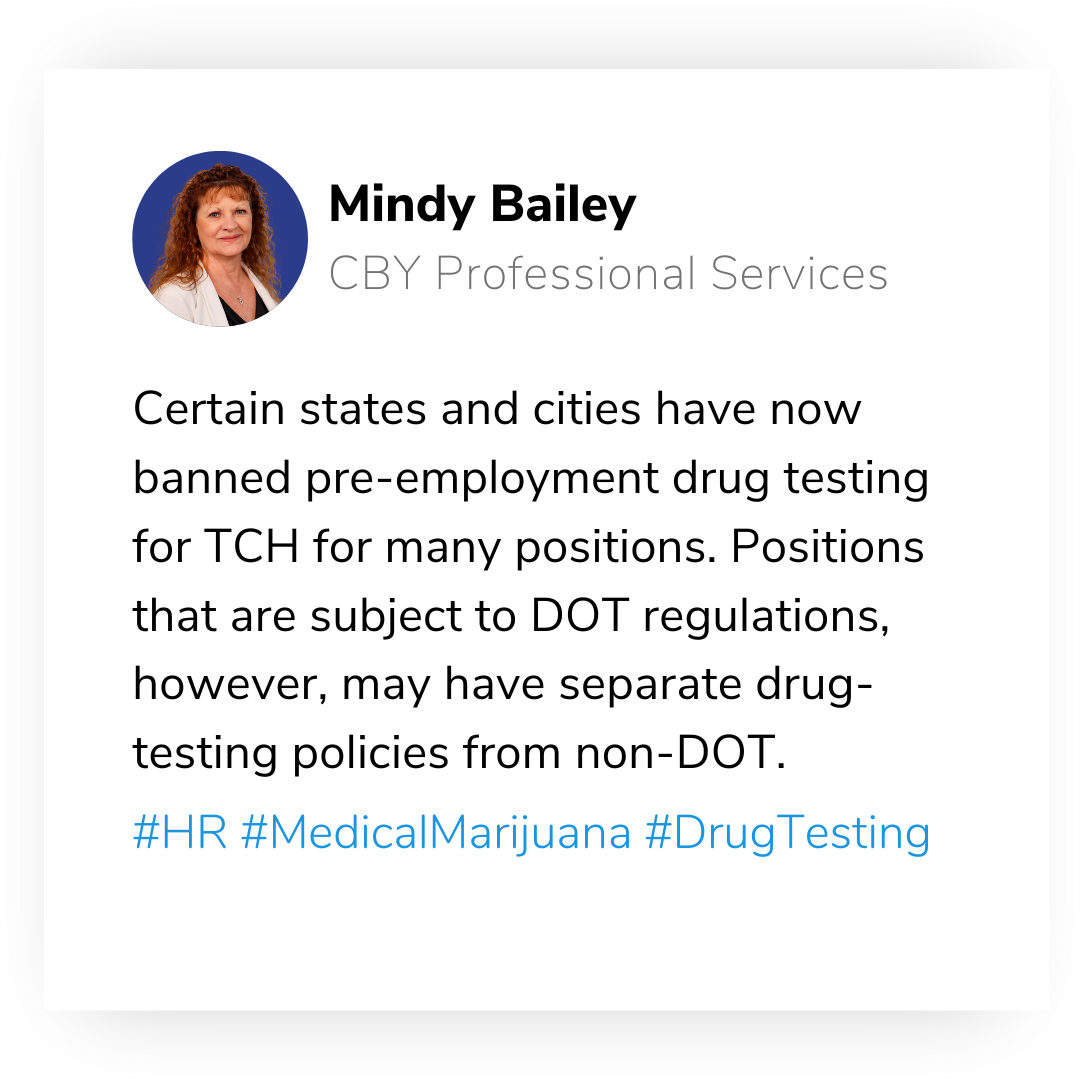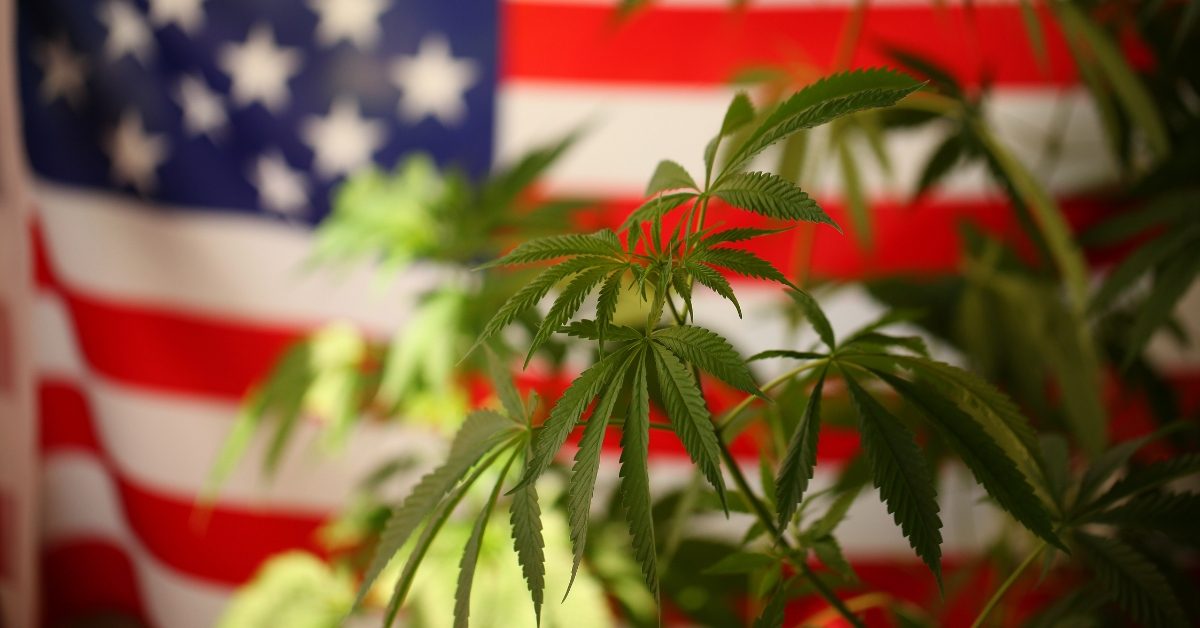On the one hand, employers want to comply with state laws that bar discrimination against employees who legally use medical marijuana.
On the other hand, employers have to ensure the safety of their workplace and adhere to federal and other state regulations.
So how should an employer approach the subject of medical marijuana cards?

Understand and develop
The first thing employers need to do is to understand the laws in their state relating to medical marijuana, says Theresa Sweeney Kwayi, CBY Professional Services Chief Human Resource Officer and Vice President of Human Resources Consulting. This can be a complex endeavor, as laws vary by state.
Second, employers need to develop a clear policy and determine their organization’s position on medical marijuana. They need to identify jobs in which employees absolutely cannot have marijuana in their bodies, such as working with high-voltage electricity or certain chemicals.
With their organization’s attorney, employers must determine what they will allow and in what roles.
“Create a process, update company policy, and consistently follow it, ensuring you are considering it per your internal guidelines and the federal and state laws,” Sweeney Kwayi says.
Employees with medical marijuana cards should follow the guidelines of their prescription while adhering to the policies of the organization and realize they might not be allowed to perform certain tasks.

To test or not to test…
By law, Pennsylvania employees do not have to disclose if they carry a medical marijuana card, but employers can ask. Sweeney Kwayi advises that employees should be honest if questioned.
Certain companies, such as those subject to Department of Transportation (DOT) guidelines and with safety-sensitive positions, would benefit from drug testing that includes marijuana tests. However, employers have to be careful not to adversely impact an employment situation when testing for marijuana.
“Certain states and cities have now banned pre-employment drug testing for TCH for many positions,” says Mindy Bailey, CBY Professional Services DOT Specialist. “Positions that are subject to DOT regulations, however, may have separate drug-testing policies from non-DOT. This needs to be clearly communicated.”

Continuously changing laws
The states’ various medical marijuana laws continuously are being updated. Employers and their attorneys should ensure that their rules and policies also are updated to reflect the laws and the position of their organization. By doing so, they can remain in legal compliance and ensure a safe and productive workplace.
CBY Professional Services is ready to help employers navigate this issue. While CBY is not a law firm, it can help employers find the answers they seek. Connect with us at CBY.com.

